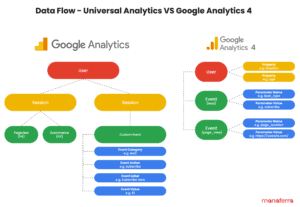In the ever-evolving landscape of the internet, Search Engine Optimization (SEO) remains a crucial element for the success of any website. Whether you’re running a blog, an e-commerce site, or a corporate webpage, understanding and implementing effective SEO strategies is paramount. In this article, we will explore the key factors to follow for good SEO optimization.
Table of Contents
ToggleSearch Engine Optimization Best Practices List
1. High-Quality Content is King (And Always Will Be)
It’s no secret that content is the backbone of SEO. Search engines, especially Google, favor websites that offer valuable, well-researched, and engaging content. Here’s what to keep in mind:
- Relevance: Your content should be relevant to your target audience and aligned with their search intent.
- Uniqueness: Plagiarism can severely harm your SEO efforts. Always produce original content.
- Keyword Usage: Incorporate relevant keywords naturally into your content, but avoid keyword stuffing.
- Length: In-depth content tends to perform better. Aim for comprehensive, informative articles.
2. Keyword Research and Strategy
Keyword research is the foundation of your Search Engine Optimization strategy. It involves identifying the search terms and phrases your audience uses. Tools like Google Keyword Planner and Ahrefs can assist you in this process. Consider the following:
- Long-Tail Keywords: These are longer, more specific phrases that often have less competition and can bring in highly targeted traffic.
- Competitor Analysis: Analyze your competitors’ keywords and content strategies to identify opportunities and gaps.
- Search Volume and Competition: Balance high-search-volume keywords with lower competition for quicker results.
3. User Experience and Website Design
The user experience (UX) plays a pivotal role in SEO. Google values websites that offer a smooth, pleasant experience to visitors. Key elements include:
- Mobile Optimization: Ensure your site is responsive and performs well on mobile devices.
- Page Load Speed: Faster loading pages not only improve SEO but also enhance user satisfaction.
- User-Friendly Navigation: Intuitive menus and clear page structures make it easier for both users and search engines to navigate your site.

4. On-Page SEO Elements
On-page SEO involves optimizing individual pages of your website for search engines. Here are some essential on-page factors:
- Title Tags: Use descriptive and keyword-rich title tags for each page.
- Meta Descriptions: Write compelling meta descriptions that encourage clicks from search results.
- Header Tags: Use headers (H1, H2, H3, etc.) to structure your content and make it more readable.
- Optimized URLs: Create clean, concise URLs that include keywords.
5. Technical SEO
Technical SEO focuses on the backend of your website. It ensures search engines can effectively crawl and index your content. Some critical technical factors include:
- XML Sitemaps: Submit a sitemap to search engines to help them understand your site’s structure.
- Robots.txt: Use this file to control which pages search engines should and shouldn’t crawl.
- SSL Certificate: Secure your site with HTTPS, as it’s now a ranking factor.
- Mobile-Friendliness: Google prioritizes mobile-friendly websites in its rankings.
6. Link Building
Backlinks remain a powerful SEO factor. However, quality is more important than quantity. Focus on:
- Natural Links: Aim for backlinks that are earned organically through high-quality content.
- Guest Posting: Contribute to authoritative websites in your niche.
- Internal Linking: Link to relevant pages within your own site to improve navigation and distribute link equity.
7. Content Updates and Freshness
Regularly update your content to keep it relevant and fresh. Google values sites that provide up-to-date information. Consider these strategies:
- Update Existing Content: Add new information, statistics, or insights to your existing articles.
- Publish New Content: Regularly release new blog posts or articles on trending topics in your industry.
8. Social Signals
While the direct impact of social signals on SEO is debated, a strong social media presence can indirectly benefit your SEO efforts. Here’s how:
- Increased Visibility: Social media can help you reach a wider audience and potentially earn more backlinks.
- Brand Authority: Building a strong social presence can enhance your brand’s authority, which can affect search rankings.
9. Monitoring and Analytics
Effective Search Engine Optimization requires constant monitoring and analysis. Use tools like Google Analytics, Semrush, and Google Search Console to:
- Track Performance: Monitor your site’s rankings, traffic, and user behavior.
- Identify Issues: Quickly address any technical or content-related issues that arise.
- Adapt and Improve: Use data to refine your SEO strategy over time.
USE XPERTIZEX TOOLS FOR SEO & OTHER
10. Patience and Persistence
SEO is not a one-time task; it’s an ongoing process that requires patience and persistence. Keep in mind:
- Results Take Time: SEO improvements can take weeks or months to show results.
- Algorithm Updates: Search engines constantly update their algorithms, so stay informed and adapt accordingly.
- Consistency: Continuously produce high-quality content and follow SEO best practices.
In conclusion, Search Engine Optimization is a multifaceted endeavor that involves various strategies and ongoing efforts. By focusing on these key factors, you can improve your website’s search engine rankings, drive organic traffic, and ultimately achieve your online goals. Remember that SEO is not static; it evolves with technology and user behavior, so staying updated is crucial for long-term success.
In essence, SEO is a holistic approach to enhancing your online presence. It’s not just about ticking boxes on a checklist or chasing algorithms; it’s about providing value to your audience. By consistently delivering exceptional content and a superior user experience, you build a strong foundation for sustainable SEO success.
Remember, the digital world is ever-changing, so staying current, adaptable, and committed is the key to thriving in the competitive online arena. Mastering the art of Search Engine Optimization is not just about manipulating algorithms; it’s about creating a better online experience for your audience. By implementing the key factors discussed in this article, you’re not only working towards higher search engine rankings but also building a foundation for sustained online success. You can use our in-house SEO tools for better optimization.






